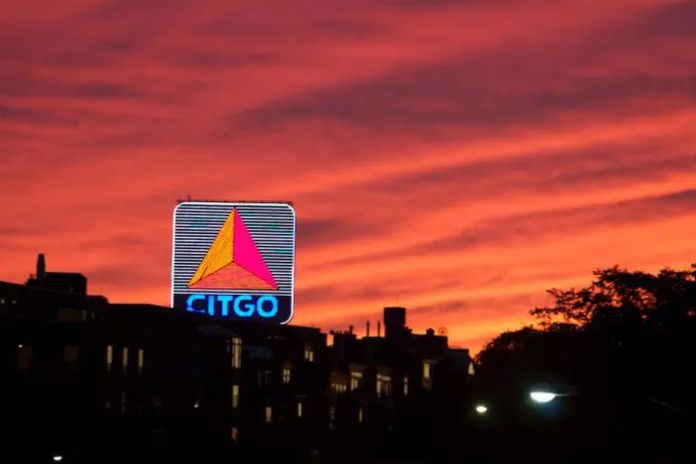- The $7.3 billion offer from the investment fund falls significantly short of the Venezuelan refiner’s valuation.
LISBON, Portugal (venezuelanalysis.com) – US corporation Elliott Investment Management has been picked as the winning bidder in a court-mandated auction of Venezuela’s US-based refiner CITGO.
Legal filings showed that court-appointed “Special Master” Eric B. Pincus chose Elliot’s US $7.286 billion bid for the entirety of PDV Holding (PDVH), CITGO’s parent company. The proposal reportedly comes from the company’s affiliate Amber Energy.
In October 2022, Delaware District Judge Leonard P. Stark launched a sale of PDVH shares to satisfy claims from 18 creditors against the Caribbean nation totaling US $21.3 billion mostly stemming from international arbitration awards. The process was initiated by Canadian mining enterprise Crystallex.
The second round of binding offers concluded in June. Other bidders included oil refiner CVR Energy and miner Gold Reserve. The latter, which has a $1 billion claim, withdrew from the auction last week.
Amber Energy CEO Gregory Goff thanked Pincus for choosing the firm’s proposal and pledged to “lay a foundation for long-term success.”In a statement, Amber laid out plans to strengthen CITGO’s potential via “a focus on operational improvements, strategic growth efforts, and a continued focus on sustainability.”
The winning bid, which falls significantly short of the liability total as well as prior CITGO $11-13 billion valuations, includes a combination of cash and credit. It is presently unknown whether Elliott joined forces with one or more of the Delaware creditors.
The reported offer will cover a fraction of the claims on a “first come, first serve” basis. Crystallex ($1.0 billion), Tidewater ($80 million), ConocoPhillips ($1.3 billion) and O-I Glass ($700 million) are at the top of the list. In parallel to the Delaware proceedings, ConocoPhillips has also moved to collect via separate judicial avenues, including efforts to seize Venezuelan natural gas proceeds from joint projects with Trinidad and Tobago.
Elliott Investment Management was founded by vulture capitalist and billionaire Paul Singer, who serves as the company’s CEO. It currently owns stakes in refiners Marathon Petroleum and Phillips 66. The hedge fund has gained notoriety for its focus on distressed securities, particularly sovereign debt from countries in default or near-default situations.
The corporation refused to engage in Argentina’s debt restructuring process following a 2002 default, instead undertaking aggressive legal strategies and seizures of Argentinian assets. A 2016 settlement awarded Elliott $2.4 billion, nearly four times its original investment.
Special Master Pincus stated that the investment firm “may elect to terminate the proposed purchase agreement” given parallel lawsuits from holders of defaulted Venezuelan bonds.
The owners of the PDVSA 2020 bond represent the most significant obstacle given that 50.1 percent of CITGO’s shares were pledged as collateral. Successive US Treasury orders in recent years have blocked bondholders from executing the collateral. The existing order expires in November, though it may be further extended in order not to derail the Delaware auction.
Despite reports that Pincus had failed to reach an agreement with PDVSA 2020 bondholders, the purchase agreement stipulates setting up an escrow account to address those claims. The PDVSA 2020 bond’s validity is currently the subject of litigation in New York courts.
The existence of such liabilities was a factor limiting the bids for CITGO. Judge Stark scheduled a hearing to rule on the winning offer for November, with the final sale tentatively expected to conclude in mid-2025.
The change in CITGO ownership is subject to approval from the US Treasury Department following Washington’s 2019 decision to recognize a parallel government and put Venezuela’s US-based assets under its control. However, the Treasury’s Office of Foreign Assets Control (OFAC) has pledged a “favorable licensing policy” for the eventual auction winner.
Former self-proclaimed “Interim President” Juan Guaidó and associates have drawn intense scrutiny for actions that precipitated the loss of CITGO. The parallel administration was accused of malpractice and conflicts of interest in its handling of legal affairs. The “interim government’s” lawyers’ failure to appear in court for more than a year allowed ConocoPhillips to secure a default ruling to execute a massive $8.5 billion arbitration award that has since surpassed $10 billion with interest.
The Guaidó group’s handling of finances and public statements likewise allowed several corporations to win “alter ego” court rulings and tag their claims to the Delaware auction, ballooning the liabilities significantly past CITGO’s valuation and hampering any possibility of off-court settlements with creditors.
For its part, the Nicolás Maduro government denounced the court-ordered sale of the country’s most valuable foreign asset as “the theft of the century.” Caracas has vowed to challenge the loss of the refiner. Nevertheless, the White House’s decision not to recognize the Maduro administration has blocked the latter from defending its interests in the US legal system.
CITGO, a subsidiary of Venezuela’s state oil company PDVSA, owns refineries in Illinois, Louisiana and Texas with a combined processing capacity of 769,000 barrels per day (bpd). It additionally owns pipelines and more than 4,000 service stations, mostly on the US east coast.





